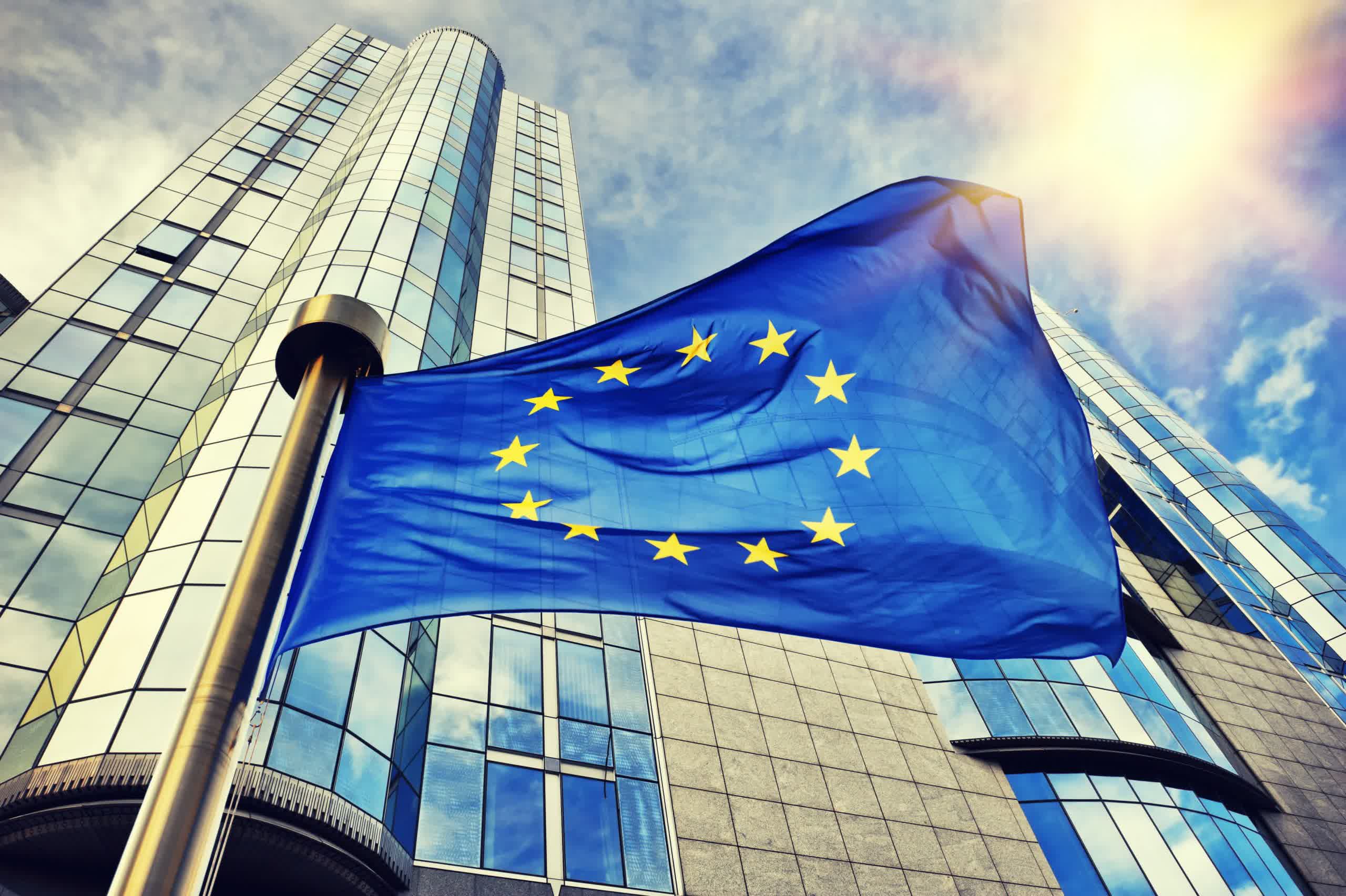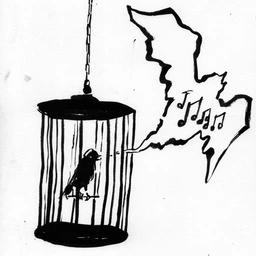deleted by creator
OH THANK f’ING GOD
A serious law would be like (but in legalese):
- By default you CANNOT use tracking cookies
- If you want to use them you should have a Table that classify them based on how much fingerprint do they take
- Then you have to explicitly ask the user in the most clear and unintrusive way possible if you can track them
- And the consent should last 30 days max
That is actually really close to what is present now. The EU never said “use cookie banners” but rather “if you really want to track people, they have to say yes”. And most commercial websites decided to make it hard to say no, now everyone blames the EU for doing so. Your second point is not yet implemented, this would be really good for consumers.
They never should have made opt-in an option in the first place. All the legitimate reasons to store data are already permitted without asking permission (required for the site to function, or storing data the user specifically asked the site to store such as settings). All that’s left is things no one would reasonably choose to consent to if they fully understood the question, so they should have just legislated that the answer is always “no”. That plus a bit more skepticism about what sites really “need” to perform their function properly. (As that function is understood by the user—advertising is not a primary function of most sites, or desired by their users, so “needed for advertising to work” does not make a cookie “functional” in nature. Likewise for “we need this ad revenue to offer the site for free”; you could use that line to justify any kind of monetization of private user data.)
There is a fine and impossible to hit line that businesses have their own interest of surviving and should be able to use data. Like making better suggestions or tracking whether certain changes in their homepage work. This is not required for functioning but vital to companies for succeeding and giving you a better product. However, this should only be done on one site at a time, cross-site tracking oe fingerprinting is what sucks and allows data brokers to exist in the first place.
No lawyer can hammer into law, what a site needs to function, as it differs by site and is flexible in what people think is necessary. But your examples are good in that they show how sites go way too far to justify their over-the-top tracking. Maybe there really is an easy way to write it in “legalese”, but I don’t see it yet. But I am fully on your site, the current behaviour and practices are bad and unclear for customers.
Sounds like the current law, except for the last point. The problem is with enforcing compliance.
About time. Last time I pointed out the uselessness of cookie banners, the reddit hivemind downvoted me to heck.
deleted by creator
For starters, calculate how many million man hours it’s wasted. This very article is them admitting they went about it the wrong way
Ban adtech
Adtech is in another US
I’m not a fan of the cookie consent popups, but I do appreciate the EU actually trying to do something to protect people’s privacy. Seemingly the only major entity to do so right now.
That was my first thought as an American. It’s refreshing to see that 1. They attempted something meaningful in the first place 2. They recognize it isn’t perfect/not having the intended effect and are making adjustments.
This seems like a functioning government.
Just don’t remove it entirely, currently companies will at least pretend to comply.
bEFORE yOU cONTINUE tO gOOGLE sure is annoying though.
Please do remove it entirely.
I manufacture data about myself. Businesses want to collect this data for their commercial benefit and profit, without paying me. Cookie splash screens almost provide a method for this to happen legitimately, while still not providing me fair consideration.
Businesses should be prohibited from collecting user data, from taking value, without paying for it.
How could you enforce a ban on any kind of user data and how could such a compensation system even work?
A ban wouldn’t work, because data collection is endemic. The cat is out of the bag.
Compensation could work through legislation and a commercial structure that dictates how things should be bought and sold. In Germany, rent is decided by the local town hall (Rathaus) on a per square metre basis. Such a system is not without flaws, but it’s better than unfettered abuse by those who have against those who have not.
I don’t know where you have your ideas about Getman rent from but I assure you that, barring some rent-control, the German rental market is free.
Remove banners, just make the companies respect the browser setting.
Now don’t make it worse!
Narrator: They made it worse
‘they always can, they always will’
They should do something about “consent platforms” using various DNS tricks and thousands of domain names to bypass/evade user blocks.
I wasn’t so bothered about some non-invasive ads a few years ago, but I absolutely despise any kind of ad now TBH, and it’s mainly down to how persistent some of these platforms are with their evasion tactics
Also pretty ironic for their popups to talk about “respecting” my privacy when these platforms literally do the opposite of that to show their popup in the first place. I will not support any of them, in any way, on my network.
As soon as I see a new one appear when browsing, I chuck it into dnsdumpster so it can get recorded with the rest of them, and then block the new list from dnsdumpster (grid icon) on my network.
Not only are they annoying, they go half way to legitimising the theft of user data.
Exactly. Identify what uses are legitimate and what uses aren’t, and legislate directly. None of this consumer consent crap because it’s meaningless to consumers. No consumer benefits from their browsing habits being under surveillance.
Was done before too, but now the websites simply need a banner for using categories of cookies which require it (tracking, marketing, …)
And we already have GDPR at least limiting activities in a broad sense. (of course lots of leeway, but still much better than before)
You cannot do more with a cookie banner you couldnt already do before.What do you mean? GDPR allowed for the “unless the visitor agrees” stuff so that’s why we see cookie banners everywhere.
I would say it should either be allowed or not, depending on the use case. A navigation app should be able to track your location for the service they provide but not for ads or selling to other companies. Your calculator app has no business even asking. Profile based advertising (rather than content based) should be banned wholesale. That sort of stuff
You do realize you only see the cookie banners because the companies are now forced to show you one? It’s not like they started collecting shit only after the GDPR nor is it entirely illegal and unethical to sell user data. The point of the GDPR was to make users aware of which websites are selling which data and give them an avenue (be that declining cookies or leaving the site) to prevent that. Corporations then designed their way around the wording of the GDPR to make declining cookies as difficult as possible which is why we’re seeing this push for a revision now. The goal still isn’t to make user data based financing impossible, it still is to prevent users from being pushed or bullied into selling their user data against their will.
That should be the goal. This cannot be left to individual consumer choice, is what I’m saying. The annoying cookie banners should be a wake-up call for regulators that the “let the consumers decide” experiment has failed.
The cookie banner is only required to store data on the users device. the tracking without is still possible and potentially allowed via legitimate interest.
If they want more they already ask for more outside the cookie banners when they require or want to have your consent (e.g. consent to load content from sources which will transfer your data outside their control e.g. youtube-embedings)
The limitations of whats allowed is already established in the GDPR, so anything you cannot find legitimate reasons for is already not allowed e.g. simply selling your data to other companies (as long as they include PII)
And as coupling is not allowed either its not allowed to couple consent with a cookie banner (which should only be used to ask for permission to store data for purposes which arent required for the usage).What we do need is to have a technical implementation of the browser to tell the website via standardized methods what is allowed or not.
It would be nice if the options weren’t like “Enable all cookies” and “navigate 4 menus that try to convince you to enable all cookies.”
AFAIK the regulation already says that the “only necessary” should be available with one click. I think the issue is that it’s difficult to go after all the small pages that are breaking the law. The big ones like YT of Google already have the ‘disable all’ button on top, I’m guessing because EU complained.
It depends on the country. GDPR is not a law. It’s a framework that countries use to implement national laws. GDPR doesn’t say anything about one-click rejection, but some countries added it to their national law.
I want an “only necessary cookies except one cookie to remember I clicked this option” button available with one click.
It doesn’t say that it should be available with one click.
It says that accepting should be just as easy as declining. Which also includes things like not being allowed to have a “greyed out” button to reject while the accept button is big and sparkly.
Yes, I think you’re right. And everything should be disabled by default, right? So the pages that make you do ‘configure -> disable all -> save’ definitely don’t follow the rules.
It would be better if you could set your preference on the browser once and never have to mess with it again unless you want to have exceptions for specific sites
In theory this is done. There is a Do Not Track (DNT) header that is browser defined. Does anyone use it? Do they fuck.
I use it and the browser kindly explained to me that the feature is mostly useless because sites don’t give a shit about it.
Sorry, I’ll revise to what I intended (since I also use it). “Does anyone pay attention to it? Do they fuck.”
This is the worst output of EU regulation ever. How has it taken them so long to realise it’s annoying?! Don’t they use the internet in Brussels?
You dont need a cookie banner if you dont want to invasively track the users.
So its really the fault of the websites for wanting to use categories of cookies which do require a banner (ad and tracking).Indeed
Plenty of websites that don’t have a cookie banner like Wikipedia and Lemmy. And both of them are completely legal.
It is only after the cookie banner that we now know how many websites are actually selling our data, turns out it is the grand majority of them.
deleted by creator
No, selling would also not be allowed via a cookie banner as the cookie banner doesnt address that.
GDPR already doesnt allow usage of PII which you cannot find legitimate reasons for. Just selling PII is never allowed as you will not find a legitimate reason for doing so.
But the cookie banner can allow more invasive tracking via setting tracking cookies which can be covered under legitimate interest for the operator of the website themselves.
You must hate your doctor for giving you the diagnosis of your illness :P
Just add 2 things:
- Cookie settings are possible to set in the browser for all pages.
- There’s a reject all button on every cookie banner.
- No there most definitely is not. Most banners have a big yes button, and you need to scroll to a settings button and then do five more things to not get cookies.
So true. And then you have Schibsted, Norways biggest media conglomerate; the only way to reject cookies is that you have to log in in order to reject it! According to the cookie law (no idea what it’s called), it’s illegal. It’s been reported to the EU and Norwegian government numerous times, but nothing happens. Fuck Schibsted!!
In my experience a lot of italian (particularly “news”) websites basically say “accept cookies or sign up for our paid subscription”
Incognito and accept all
I meant it should be added as a default thing you have in every one of those things.
He said that should be added
The reject all is already a thing. (Well is not all all, but reject all except necessary but those doesn’t matter much, they are not tracking).
That said usually is not called this way as obvious, sometimes is just “reject” without the all, “accept only necessary”, “decline”, etc or you have to close the banner etc or they use some other confusing pattern.
But even if you reject all, you still allow them to track you through the legitimate interest cookies
That doesn’t sound like a legitimate interest and should be fined or something.
No, just ban the collection of user data and selling to 3rd parties. Enormous fines for anyone still doing it. Destroy this entire industry please.
The EU is primarily pro-business, but that also means being against anti-competitive and underhanded business practices
The browser thing sounds like a good solution (although there must be a reason why DNT headers weren’t made legally binding, potentially as they wanted to allow people to pick and choose what cookies they allow based on what they thought was “too far” or something but that’s conjecture), however disallowing all user data will likely lead to companies not being able to advertise to people who are interested in their products, something which the EU will see as a negative and would also cause an uptick in scams and misinformation as you see in low quality advertising space at the moment
This comment got to me really late, probably to Lemmy’s distributed nature.
But I still want to add: of course business will make more money if you allow more practices, but selling personal data just has too many negative consequences.
Also low quality advertising? You mean like billboards and in the newspaper? You mean regular advertising?
I mean “[local town] grandma discovers 10 foods you never knew you should avoid” or even downright scams when I say low quality advertising
Also “negative consequences” is a bit overdramatic and I’d love you to elaborate… Really it’s down to the person’s own opinion, eg you don’t like it so you’ll reject that sort of thing, meanwhile I don’t mind it especially as a way of paying for decent quality media so I’ll allow it on some sites but not others
- There’s a reject all button on every cookie banner.
Most importantly, those banners should be streamiled to look the same at the very least. No highlighing “ACCEPT ALL” while graying out “reject all” nonsense. No swapping the buttons left and right, top to bottom trickery. I’d prefer if the browser takes care of it all, though. I’m already using a plugin for that, though it comes with draw backs.
Right, this!
Tired of all the dark patterns.
Which plugin do you use?
I am using „I still don‘t care about cookies“ for Firefox. It basically auto-selects the least required cookies possible. Though some sites don‘t offer opt-out so it will automatically accept those cookies. Not perfect, but I really can‘t be bothered to do a cookie captcha every time I open a private tab for example.
well, not on every cookie banner
I’d be happy to keep the ones that say:
“we notice you are in europe and we can’t use our cookies to track you so you can’t come to our website”
It’s good to know sites with policies like that to ensure I never visit them.
Typically, those already have geo filters because they can’t be bothered to implement EU requirements.
Unless you’re outside of the EU, of course, in which case you’ll probably be tracked no matter what.
One example I know if is my hometown newspaper, dentonrc.com; I have a friend who moved to Europe and was annoyed that they geo-blocked him, but I can’t really blame them. How many people are really gonna visit the site for a small American newspaper from the EU? From a business perspective it makes no sense for them to pay a developer to do more than the bare minimum.
Geoblocking in such cases would not be sufficient. For one thing your geo-IP database will never be perfectly accurate, even without considering that “data subjects who are in the Union” can connect to your site via proxies or VPNs with non-EU IP addresses. For another you still need to respond to GDPR requests e.g. to remove data collected on a data subject currently residing in the EU, even if the data was collected while they were outside the EU, and you can’t do that if you’re blocking their access to the site. For a newspaper in particular the same would apply to any EU data subject they happened to report on, whether they had previously visited the site or not.
What exactly is the EU gonna do about a foreign site that does no business in the EU? They don’t rule the world.
Sure, they don’t rule the world. They only have the power to ban you (either the company per se or its individual owners, officers, and/or employees) from ever again doing any business in the EU. Which naturally includes business with any individuals or companies either based in the EU (as a seller or a buyer) or wanting to do business in the EU. Or from traveling to the EU, whether for business or personal reasons. Little things like that. Nothing too inconvenient. (/s)
They haven’t taken things quite that far—yet. But they could. It’s dangerous to assume that you can ignore them without consequences just because your company doesn’t currently depend on revenue from EU customers. The world is more interconnected than that, and the consequences may not be limited to your company.
So is a local newspaper supposed to be afraid of not complying aggressively enough with foreign laws from the whole world, or just the EU? The way I see it they’re already doing more than is reasonably required by making a good faith effort to prevent people in the EU from accessing their site. Holding them responsible for people who deliberately bypass the blocking seems downright imperialist to me.
I know, I certainly don’t blame the little sites.
“It is literally impossible for us not to spy on you or sell your data. Sorry not sorry bye.”
It should be just a browser option.
You set cookies on or off, ans the browser sends the option in the headers. Websites just need to take the option from the header instead of a banner.
That has been tried with the DoNotTrack header. Turned out servers didn’t oblige by it.
Yeah, but if the EU required sites to pay attention to them…
That’s because it was entirely voluntary. It should be integrated in the browser by law, and the choice should be binding
if website has a choice, then they will often choose an option that benefits them the most.
Good news is third party is being phased out now https://developer.mozilla.org/en-US/blog/goodbye-third-party-cookies/
The DuckDuckGo browser has this baked in as ‘Cookie Pop-up Protection’. It doesn’t quite get rid of them all, and doesn’t let you set a default for what you want (it’ll basically pick the most privacy-forward option) but I’ve found it works pretty well.
There are addons (for firefox at least) where the cookie banner will come up but your browser auotmatically refuses all cookies.
Yes, but it often doesn’t work and even when it does the site is unusable while it works, which for some particularly awful banners is several minutes. The situation is worse on mobile where most people have a browser that you can’t install add-ons to (and I’m not sure if that one works in firefox mobile anyway)
This is the one I use. It’s FOSS and developed at a university.
Am I mistaken in believing it is an already a browser option?
Off the top of my head Qutebrowser and Falkon both support not-saving 3rd party cookies.
Your browser can not save third party cookies, but it might break some sites. Some advertising situations allow the use of first-party cookies, and blocking first-party cookies will break most sites.
In either case you will still have to fill out the consent form, and if the consent is stored in the kind of storage you block, then you will have to fill it out every single time you visit.
It already exists and is called “do not track”.
Unfortunately by sending DNT you are merely suggesting to the server that you wish to not be tracked. There’s no requirement for the server to actually care about you at all.
Now, if DNT were actually legally binding though - that would indeed be very cool.
Yes and this is what they should have legislated. I don’t know if lobbyists or stupidity got in the way, or both. But the fact that this news comes now so close to Google Chrome abolishing cookies for its new “privacy” feature is suspicious timing.




















